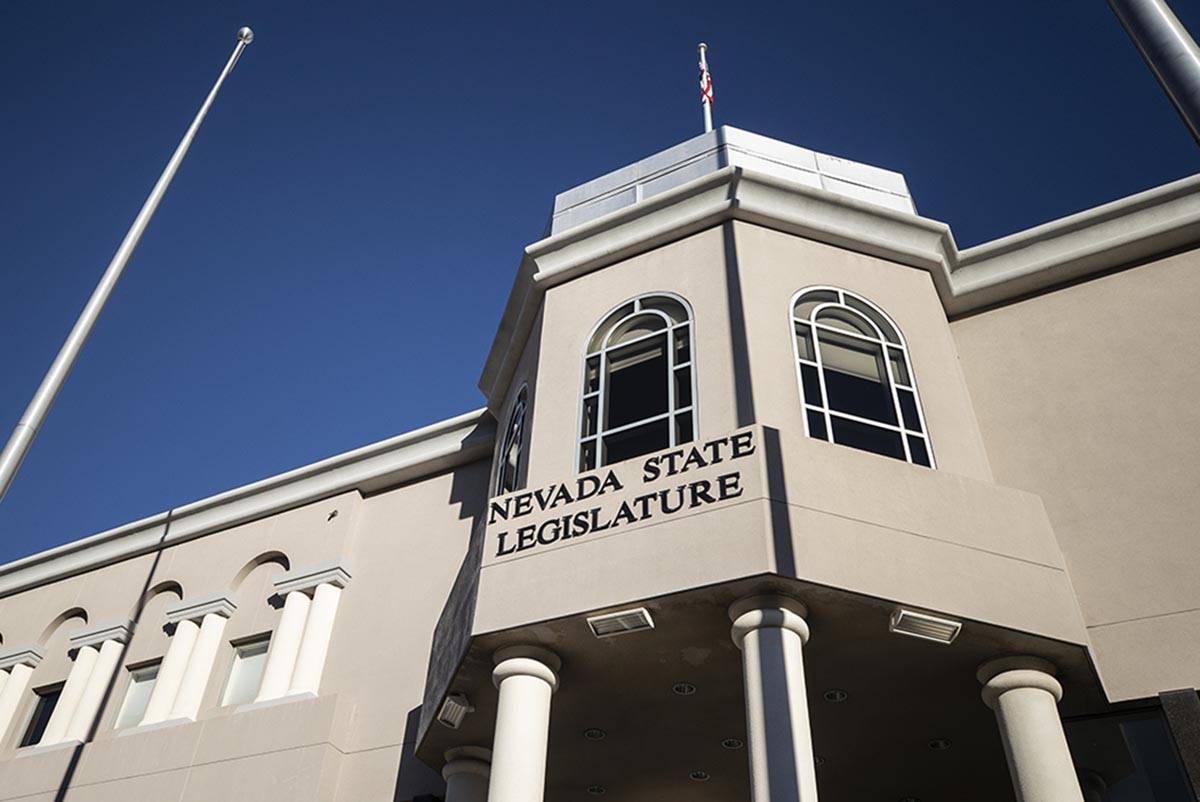Public option health care bill advances in Legislature
CARSON CITY — A publicly managed, privately contracted lower-cost health care plan to help cut Nevada’s stubbornly high uninsured rate led a list of major end-of-session initiatives moving through legislative committees toward final house approvals on Saturday, with two days left in the 2021 session.
Also advancing: plans for allocating billions in federal pandemic assistance, ditching presidential caucuses for first-in-the-nation primaries, authorizing cannabis consumption lounges and a wide-ranging energy bill aimed at increasing clean energy investments to help Nevada reach its goal of net-zero carbon emissions by mid-century.
All of the measures passed out of committee and on to floor votes in either the Senate or Assembly, possibly later Saturday evening, as both houses worked into the night.
While those and other measures moved through committees, lawmakers late Saturday introduced a long awaited session ending bill to increase taxes on mining and direct the money to education. The bill also would send $200 million in federal pandemic aid to education along with smaller allocations and set up direct reimbursements to elderly or disabled recipients for personal care services covered by Medicaid.
The health care bill, Senate Bill 420, with additional amendments, passed the Assembly Ways & Means Committee and moved to the full Assembly after passing the Senate earlier this week. It would create lower-cost, middle-tier health plans provided by insurers that bid on the state’s Medicaid managed-care contracts and would be offered both on and off the state’s health insurance exchange and to small employer market. Those plans would become available in 2026.
Also moving through committee Saturday:
Senate Bill 461 lays out how the state will allocate the $2.7 billion Nevada will receive under the American Rescue Plan, starting initially by backfilling the pandemic-created general fund revenue gap when that figure is finalized.
Following that, the state would use $335 million to repay federal loans to the state’s unemployment fund; $20.9 million to fund public health expenditures from the pandemic, including various treatments and costs for expanding public facilities and enhancing health systems; and $7.6 million to address food insecurity caused by job losses and other economic impacts.
Other disbursements would go to health care and community-based services, education, disadvantaged communities, workforce development and small business support, infrastructure and government services.
The bill moved out of the Senate Finance Committee and to the Senate for its first floor vote. The same committee also moved to the full Senate Assembly Bill 126, Nevada’s bid to leapfrog New Hampshire and Iowa and become the first state in the nation to hold a presidential nominating contest, replacing the state’s current caucus system with a primary.
The committee also advanced Assembly Bill 341, providing for the creation of cannabis consumption lounges in the state and Assembly Bill 486, an attempt to forestall a potential flood of pandemic-related evictions when a current moratorium expires and help tenants get federal rental assistance. Nevada’s moratorium ends Monday, and the federal eviction freeze is slated to expire June 30.
The multiprong energy bill, Senate Bill 448, moved out the Assembly Growth and Infrastructure Committee to the Assembly floor. It passed the Senate on May 21.
Also Saturday, Senate Republicans introduced Senate Bill 462, a bill establishing a reapportionment commission and setting its membership. Coming only two days before the end of the session, the bill — which is unlikely to pass as written — might be a bargaining chip in other legislative negotiations.
Contact Capital Bureau reporter Bill Dentzer at bdentzer@reviewjournal.com. Follow @DentzerNews on Twitter.



















